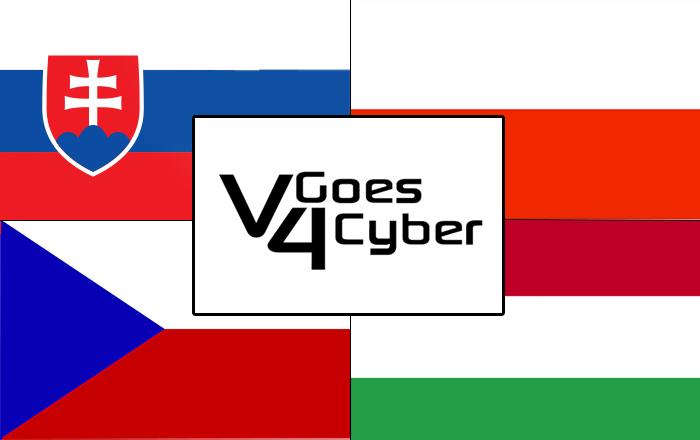
22 Mar Secure and Strong: V4 Goes Cyber
The Visegrad Group countries are connected in various ways. The most evident is based on the similar historical development and cultural similarities of the region. This provides a natural platform for cooperation. Each country of the V4 has gradually acknowledged the growing importance of cyber security issues. The project tackles the urgent need to develop a comprehensive approach in order to protect the security of their citizens. It is important to use online services while at the same time preserve the traditional values of democracy, freedom of speech, free access to information, confidentiality of information and privacy.
Global developments of the 21st century resulted in an increased focus on cyber security, however, Central European remains significantly under-developed in the terms of cyber security. For several years this area did not receive the necessary political and medial attention. Every country has different capabilities. While the Czech Republic and Poland adopted new strategic approaches and made significant progress in rlast years, Hungary and Slovakia are lacking behind.
The V4 countries are experiencing similar problems, which are slowing down overall progress. In many areas, these issues could be mitigated by the enhancement of mutual cooperation on a regional level. The first steps were made in 2013, when the V4 countries, together with Austria, launched the Central European Cyber Security Platform. This platform should serve as a common ground for sharing information, best practices and capacity building through joint exercises, trainings and research. The goal of this project was to improve the coordination and efficiency of the approaches of Visegrad Group countries on matters of cyber security through research, analysis and public discussions. In cooperation with organisations from the Czech Republic, Poland, Hungary and with the support of the International Visegrad Fund, it aims to strengthen the capacity of V4 to contribute to the creation of policies on the European Union and NATO levels.
During the realisation of the project, from January 2016 until December 2016, research/study trips and discussions were be held in Bratislava, Budapest, Prague and Warsaw.
Project partners:
Slovak Security Policy Insitute (project leader)
Prague Security Studies Institute
Poland: Casimir Pulaski Foundation
This project is supported by


